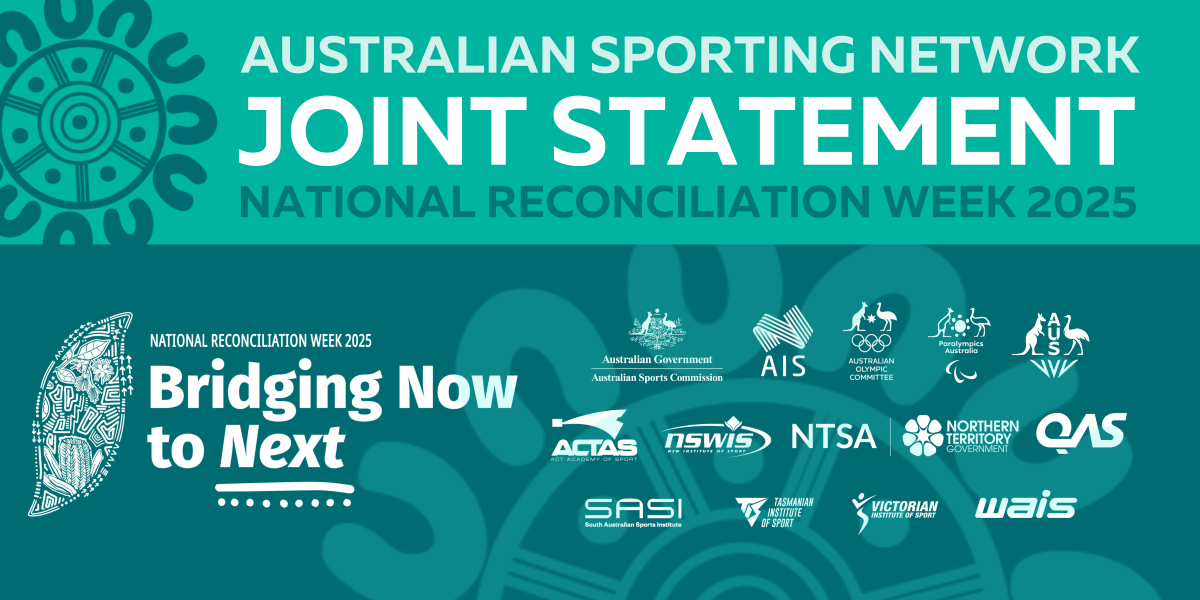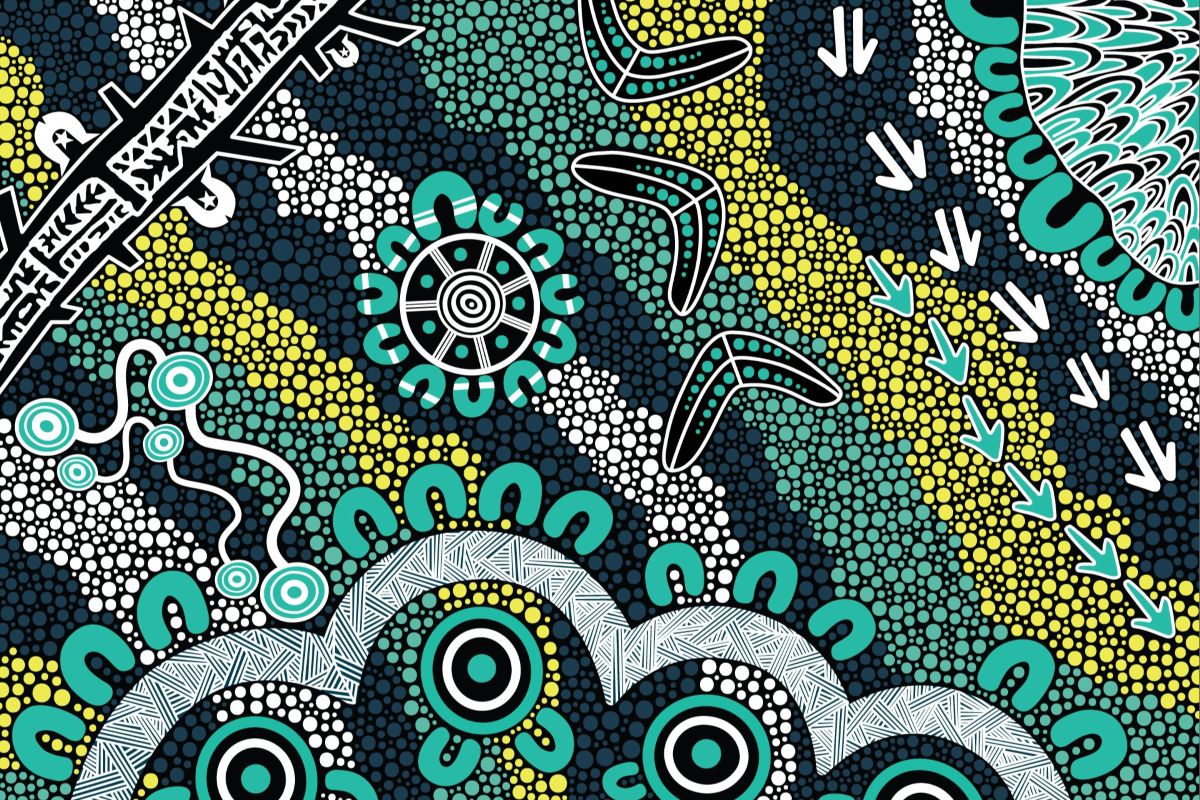27 May 2025
In recognition of National Reconciliation Week 2025, the Australian Sports Commission (ASC) proudly stands alongside its partners in sport to reaffirm a shared commitment to reconciliation.

National Reconciliation Week (NRW) is a powerful reminder of Australia’s shared history and our ongoing journey towards reconciliation. It’s a time to reflect, learn and take action, honouring the resilience, culture and achievements of Aboriginal and Torres Strait Islander peoples.
The theme of NRW 2025, Bridging Now to Next, urges all Australians to unite in advancing reconciliation. It calls on us to learn from the past, take action in the present, and build a more inclusive future.
In sport, as in life, reconciliation is a team effort, and we acknowledge the immense contributions of Aboriginal and Torres Strait Islander athletes who have shaped Australia’s sporting legacy and inspired generations.
Aboriginal and Torres Strait Islander athletes have long set the standard for excellence in Australian sport, consistently breaking barriers and inspiring generations. Their achievements go beyond medals; they represent strength, resilience and the power of culture in shaping the world stage.
Paralympic pioneer Kevin Coombs OAM broke new ground in 1960, earning selection on the first Australian Paralympic Team to compete at the inaugural Paralympic Games in Rome, making him the first Aboriginal and Torres Strait Islander Australian Paralympian.
At the 1962 British Empire and Commonwealth Games in Perth, Percy Hobson (high jump) and Jeff Dynevor (boxing) made history as the first Aboriginal and Torres Strait Islander athletes to win Commonwealth Games gold.
In 1984, Peter Kirby became the first Aboriginal and Torres Strait Islander Australian Paralympian to win a gold medal, paving the way for future champions. Tracey Barrell OAM made history in 1992 as the first Aboriginal woman to win Paralympic gold, while Nova Peris OAM became the first Aboriginal Australian to win Olympic gold in 1996.
Cathy Freeman OAM’s victory in the 400m at the Sydney 2000 Olympic Games was a groundbreaking moment in Australian history. As the first Aboriginal Australian to claim an individual Olympic gold, her achievement ignited a sense of pride, unity and hope.
These triumphs are just a glimpse of the remarkable contributions of Aboriginal and Torres Strait Islander Olympians, Paralympians and Commonwealth Games athletes who have inspired generations to dream bigger.
Sport has long been a powerful vehicle for reconciliation, bringing people together, fostering respect, and showcasing the strength of diversity.
Since 2021, Australian sport leaders, including the Australian Sports Commission, the Australian Olympic Committee, Paralympics Australia, Commonwealth Games Australia, and the National Institute Network, have come together to issue a collective statement outlining a shared commitment to advancing reconciliation.
As organisations dedicated to sport and its unifying force, we recommit to amplifying the voices of Aboriginal and Torres Strait Islander athletes, ensuring their stories are told, their contributions valued, and their pathways supported.
In 2024, the system released the Connection to Country Action Plan as part of Australia’s High Performance 2032+ Sport Win Well Strategy (Win Well Strategy). Developed by the Win Well Strategy Aboriginal and Torres Strait Islander Advisory Group, the Action Plan provides practical guidance for HP organisations to establish programs to enhance their Connection to Country.
Our vision is a high performance system that actively includes and celebrates Aboriginal and Torres Strait Islander peoples, cultures, and histories. Through storytelling, cultural awareness, integrity, and accountability, we aim to elevate their voices in sport. We commit to annual progress reviews to ensure meaningful and lasting reconciliation.
Reconciliation is a shared journey, and sport has the power to drive change. Together, let’s celebrate the power of sport in reconciliation and continue working towards a fairer, more inclusive Australia.
